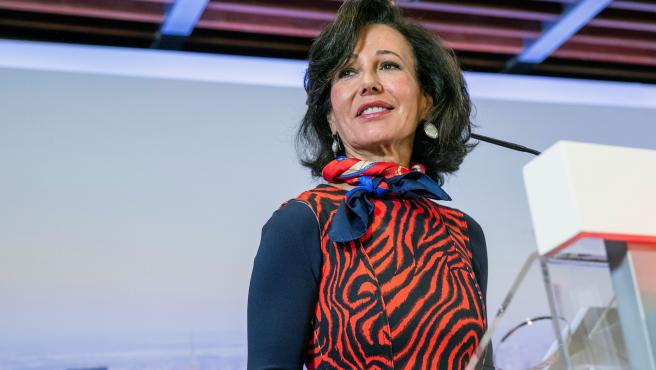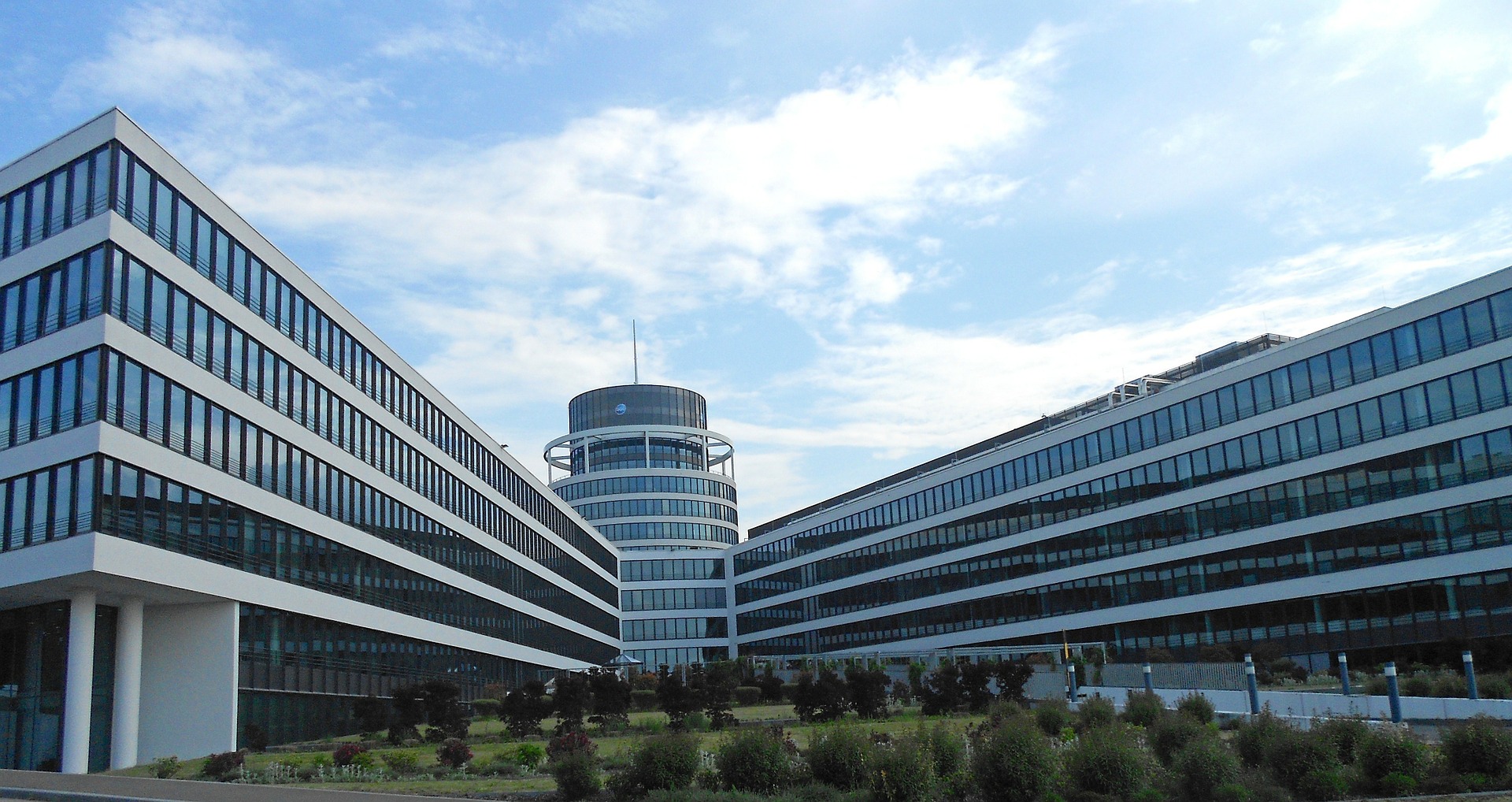La coyuntura ha mejorado, aunque la economía global sigue sumida en una gran incertidumbre
| Por Meritxell Sedo | 0 Comentarios

La volatilidad ha sido extrema durante las últimas semanas en todas las clases de activos, pero parece que los mercados han recuperado cierta calma gracias a la avalancha de intervenciones de las autoridades monetarias y las expectativas de estímulos.
Según indica Andrew McCaffery, CIO global del área de gestión de activos de Fidelity International, eso se ha manifestado ya en algunas señales, como el descenso de la volatilidad, y no solo en el contado, sino en toda la curva y en las presiones de financiación. Por ejemplo, los niveles de los swaps de divisas han descendido y han aparecido las primeras señales de que los dólares están llegando donde se necesitan. Así pues, la coyuntura ha mejorado, aunque la economía global sigue sumida en una gran incertidumbre en torno al covid-19. Se pueden encontrar noticias alentadoras en China, donde se está viendo un repunte de la actividad y señales de que la economía está regresando a los niveles previos al primer trimestre.
Se ha asistido a un rebote razonable en las bolsas, parte del cual cabe atribuirlo al ajuste de finales de trimestre experimentado por las carteras para intentar recuperar los porcentajes de referencia de las asignaciones de activos, por ejemplo, los fondos de pensiones y otros grandes inversores institucionales. Estos activos ascienden a alrededor de 1 billón de dólares, así que son movimientos importantes. Uno de los retos será el giro de las asignaciones desde lo privado hacia lo público y el proceso de gestión de ese ajuste y piensan que eso tendrá más impacto durante los próximos meses.
¿Cómo es de sólida la calma y cuánto durará?
Las señales de calma pueden seguir durante algún tiempo más, pero la clave reside en la percepción de si las medidas fiscales están teniendo un impacto tangible en la economía real, la renta de las familias y las empresas. Si los mercados empiezan a pensar que esta incertidumbre durará hasta mayo, en lugar de abril, se verán más problemas en los precios. McCaffery apunta que llevamos apenas unos días en este periodo de estabilidad, pero no piensan en absoluto que los mercados vayan a describir una recuperación en V y surgirán más obstáculos a medida que evolucionen las políticas de las autoridades.
¿Cómo pueden aprovechar los inversores de Fidelity los desajustes que se han producido en los precios?
En cuanto a cómo aprovechar los desajustes en los precios, McCaffery indica que es necesario centrar la atención en encontrar valor real en las oportunidades que ofrecen las empresas incorrectamente valoradas donde el mercado ha descontado escenarios muy negativos y cuyos balances probablemente les permitan sobrellevar el periodo que se avecina. En lo que respecta a la asignación de activos en general, todavía es demasiado pronto para realizar grandes movimientos estratégicos; mantenemos un sesgo más neutral y todavía no estamos poniéndonos decididamente alcistas.
¿Dónde deberían poner atención los compradores?
Según apunta Romain Boscher, CIO global del área de renta variable en Fidelity International, los inversores están acogiendo favorablemente esta incertidumbre y los ingentes estímulos fiscales.
A corto plazo, el mercado se ha movido por factores técnicos que explican las graves perturbaciones de las últimas tres semanas. La buena noticia en fechas más recientes es el efecto positivo derivado del ajuste de los fondos de pensiones y durante los dos últimos días se ha visto cómo el mercado se comportaba de forma algo más racional. Se están viendo más compras oportunistas de inversores contracorriente que ventas motivadas por el pánico, lo que es tranquilizador, ya que indica que hay muy pocas ventas forzosas. Existen varios reductos de actividad, por ejemplo, los bancos centrales y los clientes institucionales, que están comprando valores en estos momentos a pesar de que la crisis no ha concluido.
¿Deben las empresas recortar sus dividendos y conservar su tesorería?
Los recortes y, con mayor frecuencia, los aplazamientos de los dividendos están generalizándose en todo el mundo y eso es algo que se está descontando. También se está operando en torno a los dividendos futuros, así que según indica Boscher, se pueden medir las expectativas, que son aún más claras que en el caso del BPA, donde reina la incertidumbre. El mercado se espera que los dividendos desciendan entre un 35 y un 40% y eso no sólo está suspendiendo las recompras de acciones, sino también posponiendo las juntas generales de accionistas. El objetivo primordial de las empresas es sobrevivir, así que no se están oponiendo a esta táctica, que redunda en interés de los accionistas para sobrevivir a corto plazo y aprovechar plenamente el potencial alcista. También se espera una recesión más profunda, pero más corta.
¿Dónde deben acudir los inversores que buscan rentas?
Cuando los dividendos se suspenden y los tipos son más bajos que nunca, se trata de buscar empresas que puedan atender su deuda y cuenten con suficiente apoyo de las autoridades monetarias. Según afirma McCaffery, también hay sectores donde se han visto descuentos en los diferenciales que lo harán relativamente bien, por ejemplo, en los bonos investment grade y algunas áreas de los bonos high yield.
Hay que seguir evitando de manera clara la energía, especialmente tras el descenso del petróleo. Las áreas que podrían experimentar un rebote son los sectores vinculados al consumo que ya se benefician de un aumento de la actividad comercial en Internet y los tipos de productos demandados durante la crisis. Están pagando en estos momentos unos rendimientos considerablemente más elevados y cuentan con la ayuda de las autoridades monetarias y el apoyo de los gobiernos.
Otro aspecto es el impacto sobre las valoraciones en áreas como los inmuebles e infraestructuras, pero éstas encontrarán apoyo en los contratos públicos y los inquilinos solventes, así que existen activos sólidos que pueden generar unas rentas de calidad. Así pues, hay posibilidades de encontrar oportunidades aquí con buenas valoraciones subyacentes y rentas de calidad, especialmente en los sectores de inmuebles logísticos, de oficinas e industriales.
¿Cómo se resumen la estrategia táctica de Fidelity en estos momentos?
En Fidelity International siguen siendo cautos en su estrategia de asignación táctica y mantienen unos niveles de liquidez más elevados y una pequeña infraponderación en renta variable. Están empezando a analizar áreas con oportunidades atractivas donde existe liquidez para destinar capital, por ejemplo, algunas titulizaciones de deuda y activos de mayor calidad donde, en la opinión de McCaffery, pueden identificar balances sólidos.
¿Cómo cambia esta crisis los fundamentales a la hora de tomar decisiones?
Según explica Boscher se está viendo un nuevo paradigma por el que esta crisis está acelerando el declive de las empresas que ya sufrían un declive estructural. Está apareciendo una línea divisoria clara entre las empresas con apoyo público, como los servicios financieros, las aerolíneas, las infraestructuras y los inmuebles, y las que siguen siendo privadas y recurren a la tecnología, el consumo y los servicios. La construcción de las carteras de Fidelity International está reforzando este sesgo.
¿Cómo están dando forma a la recuperación los factores ESG?
En la recuperación, los factores ESG también están jugando un papel clave. En la opinión de Boscher, la clave aquí es la verdadera sostenibilidad. Un ejemplo es el petróleo, que anteriormente se consideraba un activo atractivo, pero ha registrado un declive estructural que se ha visto acelerado ahora por la crisis hasta un tipo de escenario de “muerte súbita” donde el petróleo se convierte ahora un activo obsoleto.
¿Cambiará esta crisis la naturaleza del debate entre gestión activa y pasiva?
Los inversores pasivos han registrado un incremento del tracking error durante las últimas semanas. Los productos indexados y los ETFs siguen siendo valiosos para tomar y variar exposiciones y por la eficiencia que ofrecen. Pero, desde la opinión de McCaffery, son evidentes las ventajas del análisis activo de empresas y la capacidad de apreciar tendencias que crean riesgos, sobre todo ahora que estos riesgos pueden acelerarse de forma repentina y dar lugar a activos obsoletos.
Además, está el elemento ESG, por el que los inversores activos pueden identificar y hacer un seguimiento de las cualidades de las empresas allí donde están realizando cambios vitales para satisfacer las expectativas de los inversores, proteger su valor y captar capital en estos momentos tan complejos.
Así pues, existe un cambio y va a haber evolución en torno a las temáticas clave y los cambios estructurales que están produciéndose y en torno a las empresas que pueden sobrevivir y también prosperar en el entorno que dejen tras de sí los sucesos actuales. Los criterios ESG son protagonistas y el capital que está regresando a medida que los mercados mejoran su funcionamiento irá destinado a las empresas que pueden situarse en vanguardia en lo que será un entorno muy diferente.
A medio plazo se prevé más control estatal y riesgo de presiones en los precios y las empresas preparadas para ello triunfarán. Así pues, la inversión activa y la apreciación de estos cambios en el entorno de mercado serán ingredientes vitales de las carteras durante los próximos meses y, de hecho, años.
¿Qué estilo tiene la intervención de los gobiernos y cómo pueden los inversores adaptarse?
Se pensaba que la intervención por parte de los gobiernos había sido superada con la crisis financiera mundial, pero, de hecho, se está asistiendo a un regreso de los “campeones nacionales”, es decir, los grandes bancos y empresas que disfrutan más apoyo y financiación del estado. Según indica McCaffery, eso va a continuar a una escala que no cuenta con precedentes hasta ahora. El populismo ha crecido y eso ha dado al estado la capacidad de influir en determinadas áreas de la economía. En Fidelity International están intentando determinar dónde va a materializarse eso, pero la compra de acciones y deuda y estructuras convertibles va a aumentar exponencialmente. Los inversores, por su parte, tratarán de evaluar qué empresas conviene apoyar y cuáles se utilizarán para devolver dinero al contribuyente a la vista de los déficits presupuestarios sin precedentes.
¿Cuáles son los motivos por los que se recordará esta crisis y cómo va a cambiar la forma en la que los inversores abordan la inversión?
Por último y en relación a la recuperación a medio-largo plazo, Boscher expone que la crisis afectará profundamente a la percepción de los inversores sobre la inversión, ya que ahora están convencidos de que no hay dónde refugiarse y la noción de “inversiones sin riesgo” o “refugios” ha perdido fuerza.
En Fidelity International contemplan tres tipos de desenlaces:
1 – Una serie de emisiones con limitación de deuda, donde el estado sostiene empresas y preserva los intereses de los bonistas.
2 – Trayectoria en V: recuperación rápida, pero solo hasta el 80% de la capacidad, lo que es bueno, pero sigue suponiendo un descenso del 20%.
3 – Mejora y recuperación del 100 o el 110%, la categoría idónea.
INFORMACIÓN LEGAL IMPORTANTE
El valor de las inversiones y las rentas derivadas de ellas pueden bajar o subir y el inversor puede recibir menos de lo que invirtió inicialmente. Las rentabilidades pasadas no son un indicador fiable de los resultados futuros. Este documento tiene una finalidad exclusivamente informativa y está destinado exclusivamente a la persona o entidad a la que ha sido suministrado.
Este documento no constituye una distribución, una oferta o una invitación para contratar los servicios de gestión de inversiones de Fidelity, o una oferta para comprar o vender o una invitación a una oferta de compra o venta de valores o productos de inversión. Fidelity no garantiza que los contenidos de este documento sean apropiados para su uso en todos los lugares o que las transacciones o servicios comentados estén disponibles o sean apropiados para su venta o uso en todas las jurisdicciones o países o por parte de todos los inversores o contrapartes. Se informa a los inversores de que las opiniones expresadas pueden no estar actualizadas y pueden haber sido tenidas ya en cuenta por Fidelity. Son válidas únicamente en la fecha indicada y están sujetas a cambio sin previo aviso. Este documento ha sido elaborado por Fidelity International. No puede reproducirse o difundirse a ninguna otra persona sin permiso expreso de Fidelity. Esta comunicación no está dirigida a personas que se encuentren en los EE.UU. y no debe ser tenida en cuenta por dichas personas. Está dirigida exclusivamente a personas que residen en jurisdicciones donde los fondos correspondientes se hayan autorizado para su distribución o donde no se requiere dicha autorización. Todas las personas que accedan a la información lo harán por iniciativa propia y serán responsables de cumplir con las leyes y reglamentos nacionales aplicables, debiendo además consultar con sus asesores profesionales. Estos contenidos podrían contener materiales de terceros que son suministrados por empresas que no mantienen ningún vínculo accionarial con ninguna entidad de Fidelity (contenido de terceros). Fidelity no ha participado en la redacción, aprobación o revisión de estos materiales de terceros y no apoya o aprueba sus contenidos explícita o implícitamente. Fidelity International es el nombre del grupo de empresas que forman la sociedad internacional de gestión de activos que ofrece productos y servicios en jurisdicciones específicas fuera de Norteamérica. Fidelity, Fidelity International, el logo de Fidelity International y el símbolo F son marcas registradas de FIL Limited. Fidelity sólo informa sobre sus productos y servicios y no ofrece consejos de inversión o recomendaciones basados en circunstancias personales. Recomendamos obtener información detallada antes de tomar cualquier decisión de inversión. Las inversiones deben realizarse exclusivamente teniendo en cuenta la información contenida en el folleto vigente y el documento de datos fundamentales para el inversor (DFI), que están disponibles gratuitamente junto con los informes anuales y semestrales más recientes a través de nuestros distribuidores y nuestro Centro Europeo de Atención al Cliente en Luxemburgo: FIL (Luxembourg) S.A. 2a, rue Albert Borschette BP 2174 L-1021 Luxemburgo o en esta misma página web. Fidelity Funds (“FF”) es una sociedad de inversión de capital variable (UCITS) con sede en Luxemburgo y diferentes clases de acciones. Publicado por FIL (Luxembourg) S.A., entidad autorizada y supervisada por la Comisión de Vigilancia del Sector Financiero de Luxemburgo (CSSF). 20ES0060 / GIM20UK0917









